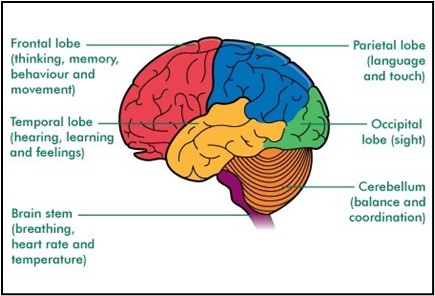 Injury to the head can result in a wide range of mild to severe problems depending on the area of the brain that is impacted and the severity of the trauma. Head injury typically occurs when the brain hits against the sides of the skull potentially causing damage to the brain tissue and the nerves. Swelling and bleeding in the brain can also occur. Trauma to the area of the brain responsible for the motor aspects of the senses and interpreting visual and auditory information can result in vision and hearing loss. The degree of loss depends on the severity of damage and the ability of one’s brain to recover.
Injury to the head can result in a wide range of mild to severe problems depending on the area of the brain that is impacted and the severity of the trauma. Head injury typically occurs when the brain hits against the sides of the skull potentially causing damage to the brain tissue and the nerves. Swelling and bleeding in the brain can also occur. Trauma to the area of the brain responsible for the motor aspects of the senses and interpreting visual and auditory information can result in vision and hearing loss. The degree of loss depends on the severity of damage and the ability of one’s brain to recover.
There are a wide range of vision issues associated with brain injury including impaired muscle or nerves leading to double vision, strabismus (eyes looking in both directions) or the inability to use one of the eyes, perceptual disorders, tracking problems and central and peripheral blindness or vision loss. If the occipital lobe of the brain is injured, a person may experience cortical visual impairment (CVI). CVI is a vision impairment caused by damage to the posterior visual pathways or the occipital lobes of the brain. With many people who have CVI, the visual system in the eye is intact, however, the brain is not able to receive and interpret the visual information causing the person to function as someone blind or with low vision.
Hearing loss as a result of head injury can be conductive or sensorineural. Conductive loss is typically related to damage to the bones in the middle and inner ear. Sensorineural hearing loss due to head injury is typically related to damage to the auditory nerve or the parts of the brain associated with interpreting auditory signals. Central auditory processing disorder can occur when the part of the brain responsible for auditory processing is damaged and the auditory messages being sent are not able to be received or interpreted.
Head injury may also directly impact the eyes or ears and can result in bone, muscle, nerve or tissue damage. Hearing and vision loss related to direct trauma to the eyes and ears vary significantly depending on the location and extent of the damage.